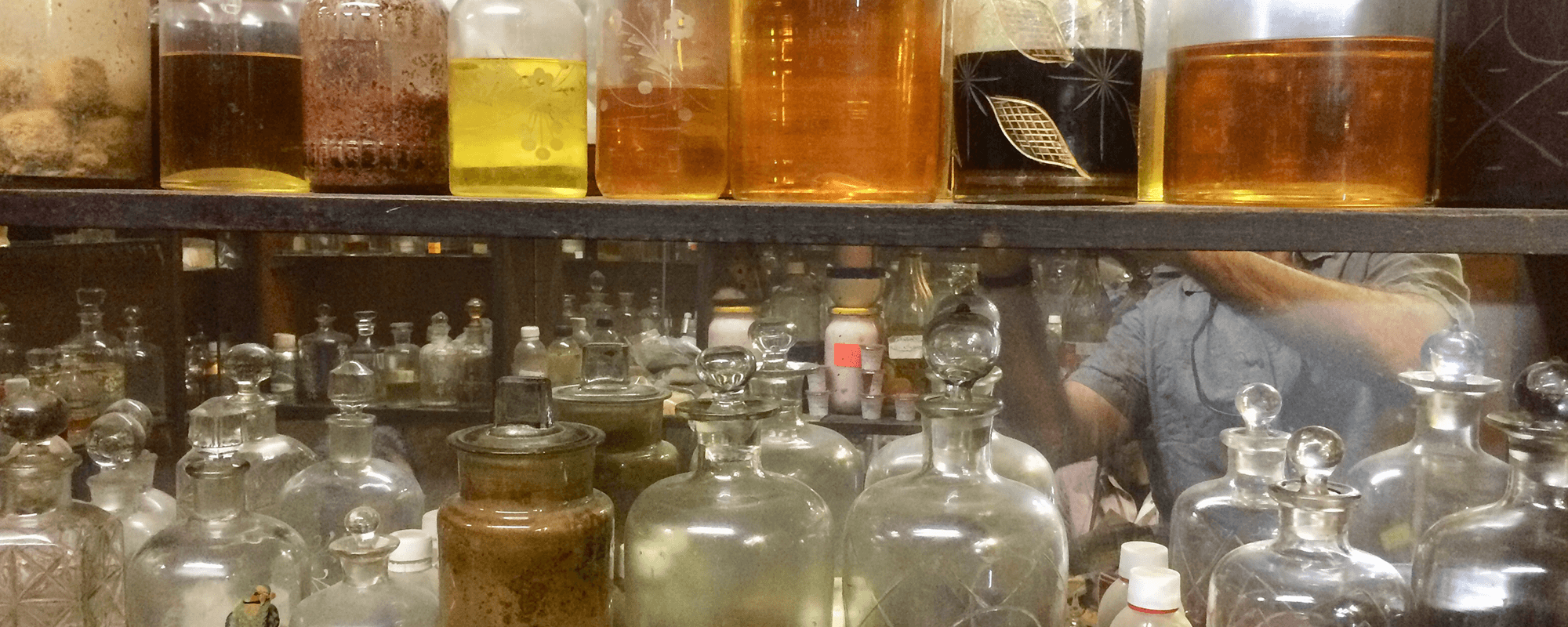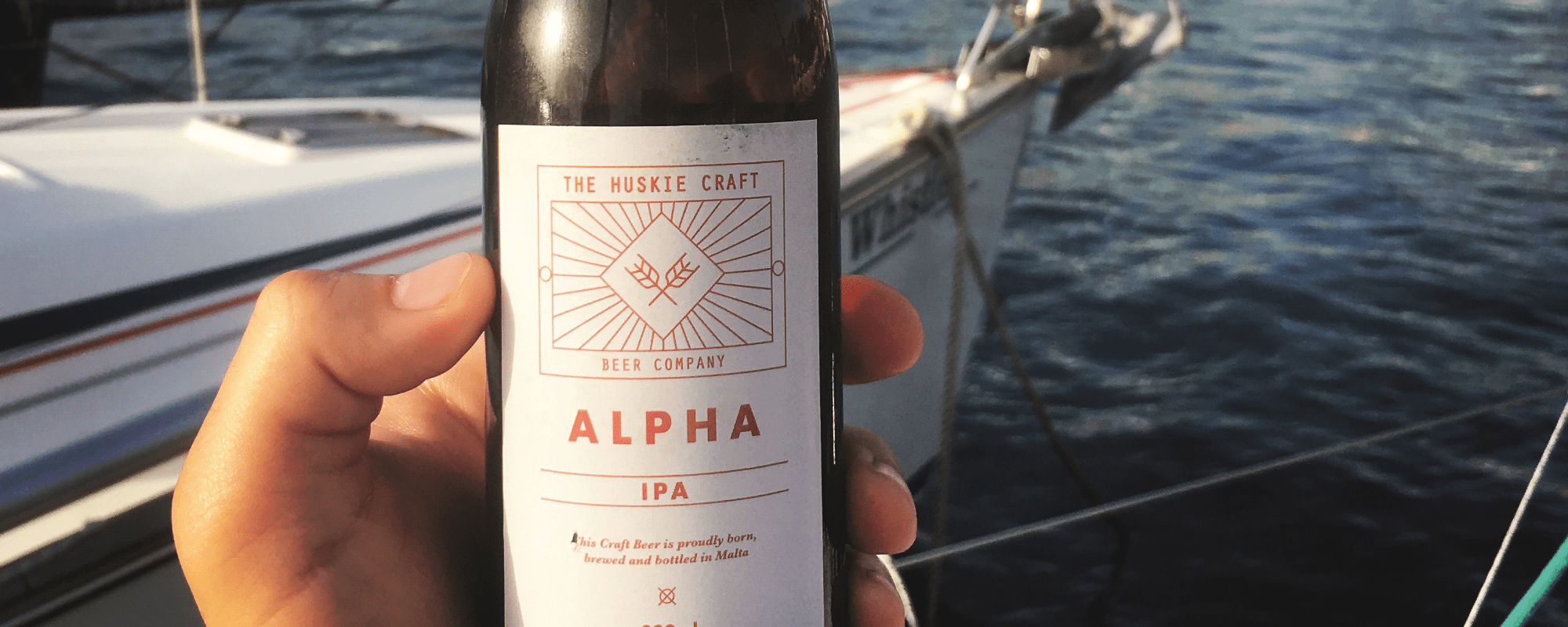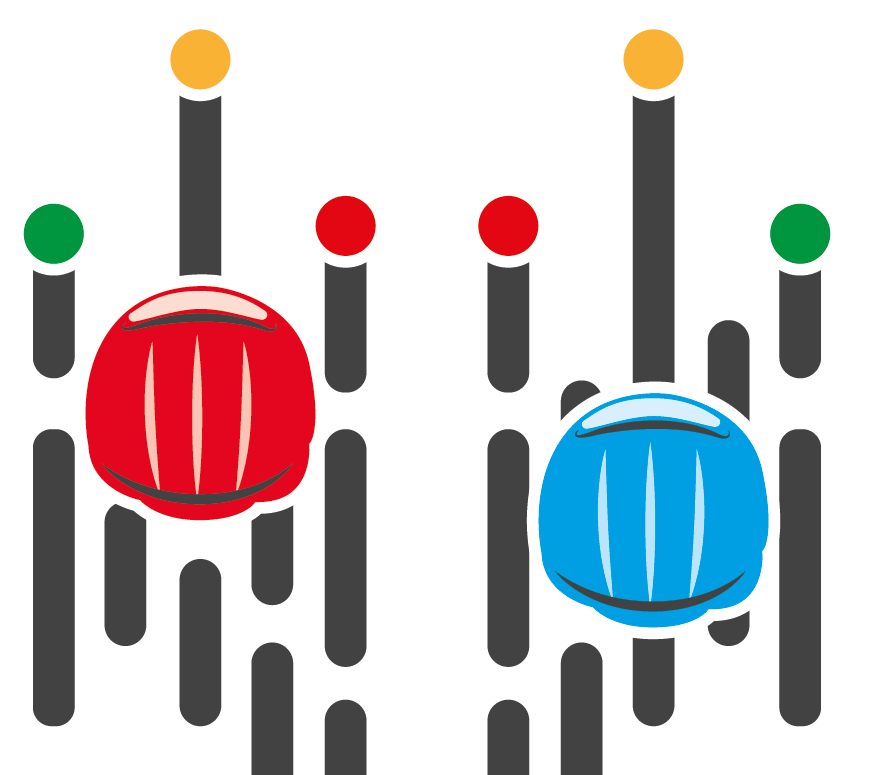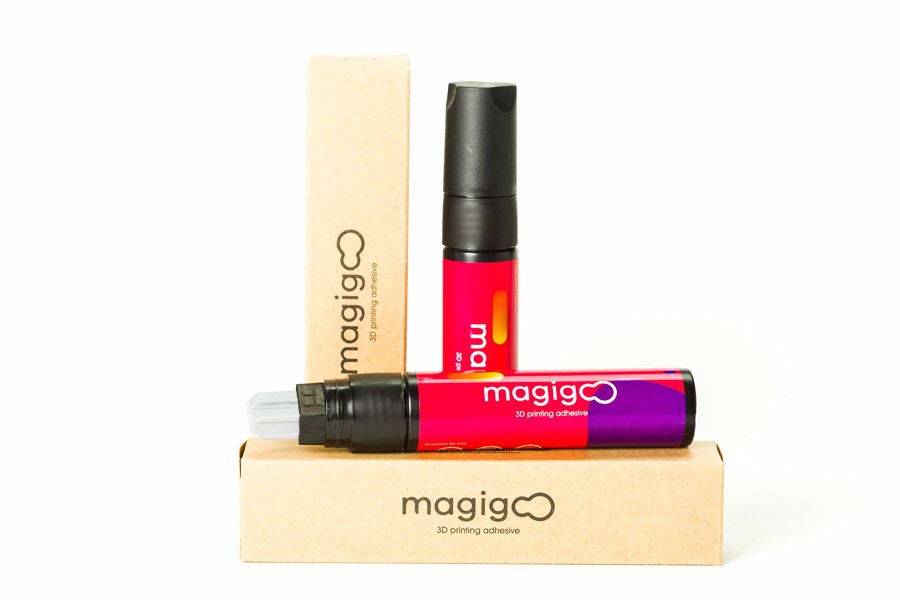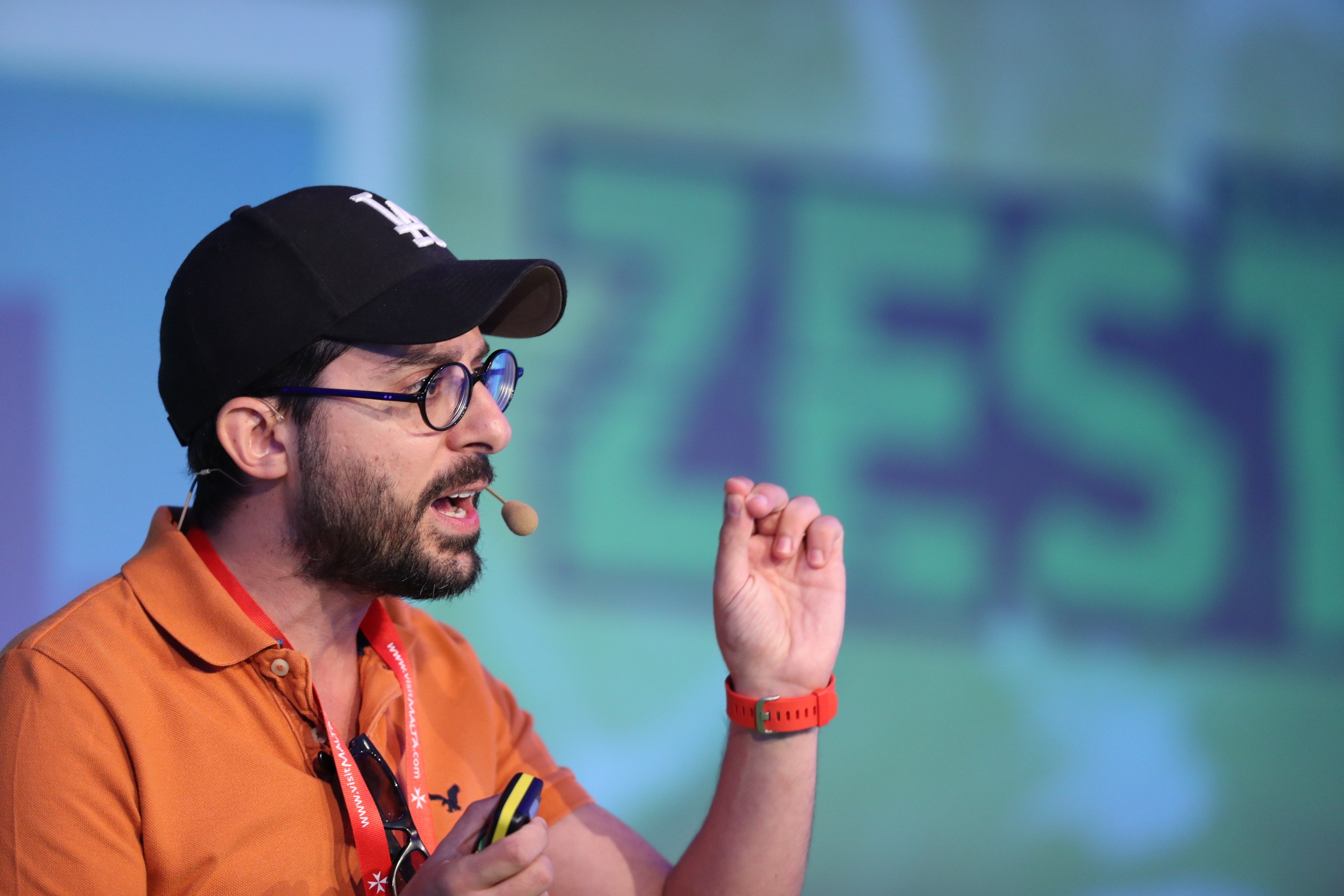Traffic! How does one even approach the problem of limited road space? For one start-up, the answer lies in the way we use roads and the data behind it. Zippy Tseng from THINK gets in touch with Claire Cianco from Greenroads to find out more!
Continue readingSniffing out pollution at sea
The maritime industry is one of the largest producers of greenhouse gas emissions. While newly introduced legislation helps control this hazard, it has significantly increased the burden for Port State and environmental authorities. Antónia Ribeiro interviews Nicky Borg, the founder of local start-up Marine Hound, to discover how their original smart buoys can help solve the problem.
Continue readingMaking home ownership easier for everyone
Dardingli is the brainchild of Beatriz Rodriguez Sanz and Xabi Rivera, two people from very different professional and personal backgrounds. They struggled to find a home, a common problem in Malta, so they decided to solve the island’s real estate woes. Inna Korchilava from THINK magazine finds out more.
Continue readingThe scent collector
After trying her hand as a chef and creative consultant, Marina Fabic discovered her true passion in marrying her refined palate and senses with a never-ending wanderlust to create a series of perfumes. Chris Styles writes.
When you think about the senses that inform your world, would smell come up at the top of the list? Probably not, despite the fact that everyone’s sense of smell is unique.
Unlike other senses, olfactory nerves are hardwired directly into the primitive part of our brains. Smells can trigger the amygdala and hippocampus regions, areas of the brain that processes memory and emotion. This is why the smell of freshly cut grass or rain after a hot afternoon can transport you back to summers long gone. This is the very feeling that Marina Fabic hopes to capture in her scent creations.
Continue readingCrafting business from hobbies: The HUSKIE story
Put a physicist and an engineer together and what do you get? A brewery. Obviously. Cassi Camilleri sits down with Jean Bickle and Miguel Camilleri to talk about entrepreneurship, beer, and how variety really is the spice of life.
As you read this, a warehouse in a Qrendi quarry is bustling, undergoing hefty conversions as it morphs into a dream brewery. Water and electricity supply is solid, the walls have a fresh lap of white and the steel housings are in place. Now, the countdown begins until the tanks are set up. But they’re used to it. This waiting business.
The Huskie Craft Beer company was but a twinkle in their eye when Jean Bickle and Miguel Camilleri first met as workmates during a stint in Leeds, which is where they discovered a thriving craft beer scene.
‘We were part of a club at the Wharf Chambers,’ Bickle remembers. ‘It’s what we did after work. We played table soccer and tried beers.’ Learning about the process, the recipes, and the different flavours that are possible to incorporate in a beer, planted a seed in them both. ‘Eventually, when we came back home, we wanted to give brewing a shot ourselves,’ Bickle adds. And so they did.
Getting the basics down
Their first investment was in education. ‘We spent quite a bit on books and materials to learn how to brew,’ Jean says. They had the ingredients down—water, malt, yeast, and hops. Hops being the flowers of the hop plant which are used as a bittering, flavouring, and stability agent in beer. They understood the role temperature played and gained plenty of experience with identifying flavours through taste tests. Beyond this, however, they also needed to be familiar with how these ingredients interact with one another and the techniques involved in creating a beer.
They were more careful with their purse strings when building their first set up in early 2017. ‘We could have very easily gone online and found these home brewing kits. But you have to spend a lot of money to get those. And this was all coming from our own pockets. So, with Miguel being an engineer, we just bought stainless steel tanks and sheets, shaped them, and welded the parts together. We even built the control panel and electronics ourselves. Everything was done from scratch.’


This is not to say that it was all smooth sailing. ‘Sometimes you get ahead of yourself. You start rushing in your eagerness to try out new things. Which is fine. But sometimes you have to take a step back and go back to basics. We keep each other in check,’ Jean notes, smiling. ‘We both come up with radical ideas on how to approach the task at hand, but you can’t do everything at once, otherwise you get careless.’
‘You’ve also got to be adaptable and not follow others’ rules to the dot. Malta’s ambient conditions and accessible raw materials make brewing harder than in many other countries. With the right technique though, it’s definitely possible,’ Miguel points out.
Creative thinking meets business
Initially, it was all about making beer. ‘Our focus was that the quality of the process should be done to a certain standard,’ Jean says, but the creative element soon started becoming a priority. ‘Now we have shifted to the actual product being top quality. You have loads of recipes online if you want to find them, but we wanted to create our own.’
From a business standpoint, finding what makes you unique is an essential part of building a company. What is the value you are bringing to your client base that others are not?
Huskie’s approach harkens back to the reason the boys started the company. They loved beers and wanted to continuously try new ones. When they had the brewing process perfected, it was time to start being experimental.
‘We started thinking about creating recipes we hadn’t seen before, with flavours we hadn’t seen anyone use before. We made beers using Maltese strawberries for example, and we also produced a range of beers inspired by the flavours of the traditional qagħaq ta’ l-għasel (honeyring).’ Of course this isn’t as simple as adding some extra water to a cake mix.
‘Experimentation brings about its own set of challenges. Some ingredients have their own sugars, so including them in the beer recipe drives the yeast crazy.’ And when Jean says crazy, he means it. ‘If we don’t get everything right, the pressure in the bottle can build up and they literally explode. We’ve had this happen a few times,’ Jean admits. ‘We call them molotovs,’ Miguel grins.

But even with the added cleaning time, all’s well that ends well. This curiosity has given Huskie a very niche service they can provide to clients. ‘We can create beers exclusive to our clients. If someone comes along and tells me I like cinnamon or whatever, we can create something specifically for them.’
Coming up with each new recipe involves another process of trial and error, tinkering, and perfecting. ‘When we come up with a new recipe, we usually come up with three different versions and we taste each different beer on the same day. We write down notes, we compare, and if there is some kind of consensus, we move onto that.’ Now, Jean and Miguel have a spreadsheet with all the beers they produce, each marked with a rank. So far, over the course of two years, they’ve already finalised 11 beer recipes and released four to the market!
No to mass markets
The culture behind craft beer is one that is very close to Jean and Miguel’s hearts. This is not about making three beers, sticking to them, and selling them en masse. They want to keep the personal touch, the Maltese identity in their product, while pushing boundaries and trying new things. ‘So our philosophy is get this beer now because it won’t be around in six months. We want to continue creating.’

Of course, this isn’t always easy. And Jean is the first to say it. ‘It’s hard letting go of a good beer,’ he admits. ‘Even we fall in love with some of the recipes. But you have to come from a place of abundance. We know we can continue to create good beers. And we will.’
Now they’re in the growing phase. Setting themselves up to expand their brewing power. With the new brewery they’ll soon be able to increase production tenfold. ‘Then it’s about creating our own events. Entering competitions abroad. We want to put Malta on the map.’
‘We’ve already spent a year working on the new brewery, so we’ve had a lot of time to think about what we want to do and where we want to go, and this is essential in building a business that is sustainable. You have to do things right and really think about things properly,’ Miguel asserts.
This measured attitude has definitely worked in Huskie’s favour. Research led to new funding opportunities. ‘Miguel found out about [the] TAKEOFF [business incubator] and we met Joe Bartolo. He really motivated us and was of great help in the vital early stages,’ Jean says. After a few months Huskie was awarded a TOSFA fund that they used to purchase more equipment, allowing them to try more recipes and scale up production. They followed this up with some EU funding applications. ‘We [obtained] funding to purchase more equipment for the brewery,’ he notes.
Jean is quick to mention the help and support from their family and friends.
‘We got a lot of help. Really a lot. Miguel’s father helped us with the building of the brewery. His uncle did all the electricity. And Connie, Miguel’s mum is a star. Miguel did all the planning, plumbing, and the majority of the rest. He’s even got the scars to prove it! I painted a wall. It was a real team effort,’ Jean laughs.
Maintaining Balance
For such a new business, Huskie is already growing with leaps and bounds. But hours in the day are limited and questions about priorities and goals are already circling. ‘Managing Huskie at its current level already takes up loads of our time, and we’ve had to sacrifice a lot from our private lives,’ Jean says. ‘But in doing that, Miguel and I manage to run it whilst still holding full time positions. Where it will take us in the future—well, who knows? We wouldn’t mind employing people to take care of logistics and cleaning for example. We’re also looking into hiring a driver to take care of distribution for us.’

The love they have for medical physics has in no way diminished. ‘Miguel and I both love what we do. Working in healthcare is extremely satisfying and keeps us well in check on life’s priorities,’ Jean says. ‘And that is just as much our passion as brewing beer is. But I believe that if you work hard enough at something, and if you love it enough, you’ll find the time for it.’
‘Everybody will say you’ll enjoy it once you get there. But for us it’s more important to enjoy what we’re doing while getting there. God forbid Miguel and I weren’t friends. We’d kill each other with all the time we spend in the same room. For us, the brewing thing works because it’s part of the development of our friendship. We brew, drink, chat, and joke. It’s about enjoying the process. Not just tunnel vision towards the end goal.
#GetLearnD
Students tutoring students
According to MATSEC, two in every three 18-year-old students don’t make it from sixth form to university. Gail Sant speaks to the team behind LearnD to find out more about their take on student-centred education.
You love films, videos, and photos. You relax while watching Netflix, and learn new skills on platforms like Skillshare and YouTube. Me? I adore the written word. Books, magazines, blogs are all I need to live a happy life. People are unique. And we all learn things in a unique way.
Different people require different teaching methods to learn. But most classroom set-ups involve one teacher, one lesson, and thirty-odd students. The lesson is interpreted in thirty different ways; a few absorb more than others, leaving some in need of extra help to ace their maths test. And how do they do that? With private lessons.
In Malta, private lessons are the go-to solution for students struggling with a subject. However, these sessions tend to be a carbon copy of school classes: one tutor, one lesson, multiple students. This problem was the seed that gave rise to the education-focused startup LearnD.
The philosophy
LearnD is a tutoring app invented by Luke Collins, Jake Xuereb, and Dr Jean-Paul Ebejer (Centre for Molecular Medicine and Biobanking, University of Malta). The concept behind it is simple, Ebejer says; ‘it’s a bridge between students who can act as mentors and students who need the help.’
LearnD does away with the one-size-fits-all standard of teaching and offers students tailor-made tutoring. Individuals are treated as such, their problems tackled through dedicated sessions. As a student, you don’t need to sit through a whole syll

abus of private lessons. The idea is to identify your weak points and hone in on them in select sessions. This is both time and money-efficient.
Xuereb believes ‘private lessons can make students lazy.’ They don’t need to evaluate their problems, or focus on where their issues lie. Not when they know they’ll just cover all the topics at various points during their weekly appointment with their second teacher on Tuesday night. LearnD focuses on dividing attention unequally. If you get an easy A in physical chemistry but struggle to pass organic chemistry, it only makes sense to give the latter some extra TLC. To get to this point, students need to take a step back from their desks and separate their strengths from their weaknesses.
This is also a big plus for tutors who don’t want to (or can’t) commit to teaching a whole syllabus. They can simply prepare a lesson for the requested topic and leave it at that, earning some extra money to accompany their stipend while gaining teaching experience.
But LearnD isn’t just about academia. Some lecturers lose touch with ‘the student life’, distancing their relationship with students. Conversely, student-tutors know the struggles a peer would be going through and can provide support. ‘No one would have a better understanding of what a sixth former needs to do to get into medicine than a medicine student,’ says Xuereb. ‘Through LearnD you can find people who have been through the exact same thing and who can offer their best advice on anything from time management to de-stressing, and everything else.’
Making it happen
The original concept was more related to finding a way for academically inclined 6th form students to contribute productively to society,’ says Xuereb. When he spoke to Collins, a fellow University of Malta student and Xuereb’s former maths tutor, the idea went from ‘an online local network’ to ‘app’. At the time, there were no local tutoring apps.
Despite both being passionate about the idea, they soon realised that they needed someone with business experience, and that’s where Ebejer came in: the LearnD team was born!
The process that made this idea into reality was not a simple one. Xuereb and Collins spent over six months working on the app, learning about the tech behind app-making and coming up with a business plan.
They got their break when they won the Take-Off Seed Fund Award in 2018 and got the necessary funds to make the app a reality. They quickly got the ball rolling, hiring designers, app developers, and marketing agents. The team grew; the app was built. Then, during the KSU Freshers’ Week in 2018, the app was partially launched, inviting potential tutors to apply. The app is now fully launched and available for students.
Troubles

As with all big projects, the team ran into a few setbacks along the way. One prominent techy mishap didn’t allow them to launch the app on the Apple Store, making it difficult to keep up with the launch date.
Since the app is used by underage students, there were also a lot of safety features which needed inclusion. Tutors upload their police conducts and ID cards. Also, to make sure LearnD’s service is reliable, the team not only analyses tutors’ qualifications, but they also try and test each applicant out themselves. And for accounts which belong to students under the age of 16, parents need to authorise any communication which goes on through the app.
The team persisted through the struggles they encountered and continue to work hard to solve any problems which crop up. Despite difficulties with time management, Collins and Xuereb, both undergraduate students, expressed how this app allowed them to dive into the working world. They gained entrepreneurial maturity, understanding the importance of a reliable team which shares the same ideas and work ethic, as well as dividing funds for the project’s overall benefit.
A LearnD future
The LearnD story doesn’t stop here. ‘We want to renovate the education space,’ says Ebejer, adding that they wish to take the next step and make it internationally available. Malta’s size makes it the perfect test bed, but they think that the app shouldn’t be limited to its home.
According to MATSEC, in 2017 only 27% of 18-year-old students acquired the necessary qualifications to get into university. Collins expressed that students ‘shouldn’t get lost’ because of a bad exam result or because of a mismatched student-teacher scenario. Students deserve to be treated as individuals, and LearnD can offer them that.
EasyPeasyCoding: giving kids a head start
In today’s plugged-in world, kids need to think critically and learn basic coding. Cassi Camilleri speaks to Headstart founder Klaus Conrad about his mission to give children the leg up they need to learn these key skills.
Thinking in 3D
In 2013 two diving buddies attempted to build a watch. Less than five years later, they have created and commercialised a solution to a fundamental problem with a budding and disruptive technology. Here is the story of Thought3D, from diving deep to making waves. Words by Sam Stanfield.Continue reading
Simple and Powerful: Start-Ups
Yasmine Gatt meets Dr David Darmanin, Founder and CEO of hotjar, who talks about how upcoming entrepreneurs can maximise the use of the virtual word to their advantage
Continue reading



